Digging in your backyard can be a great way to get fresh air, exercise, and maybe even discover something you didn’t know existed. Whether planting a garden or searching for buried treasure, digging in the backyard can be a fun and rewarding experience.
But in the US, an important law requires you to call 811 before digging. For all information, you can visit https://call811.com.
How deep can I dig before calling 811?
It would help if you did not dig before calling 811. If you try to dig only a few inches to plant small flowers, even then, you need to call 811. Usually, people who try to plant gardens, flowers, and bushes can cut the buried utility lines.
811 is a free service available nationwide, 24 hours a day and seven days a week, so there isn’t an excuse for not being aware of its existence. All you have to do is log on to their website (www.call811.com) or dial 8-1-1 from anywhere in the United States to request help locating underground utilities near your proposed project site so that appropriate steps may be taken before beginning any project that would involve digging into the ground. On average, you will only have to wait about two business days after submitting your request for work crews to arrive at your location and begin marking off any possible hazardous areas with flags, paint, or stakes, depending on which method is used in your state/region.
See this segment from the 811 websites:
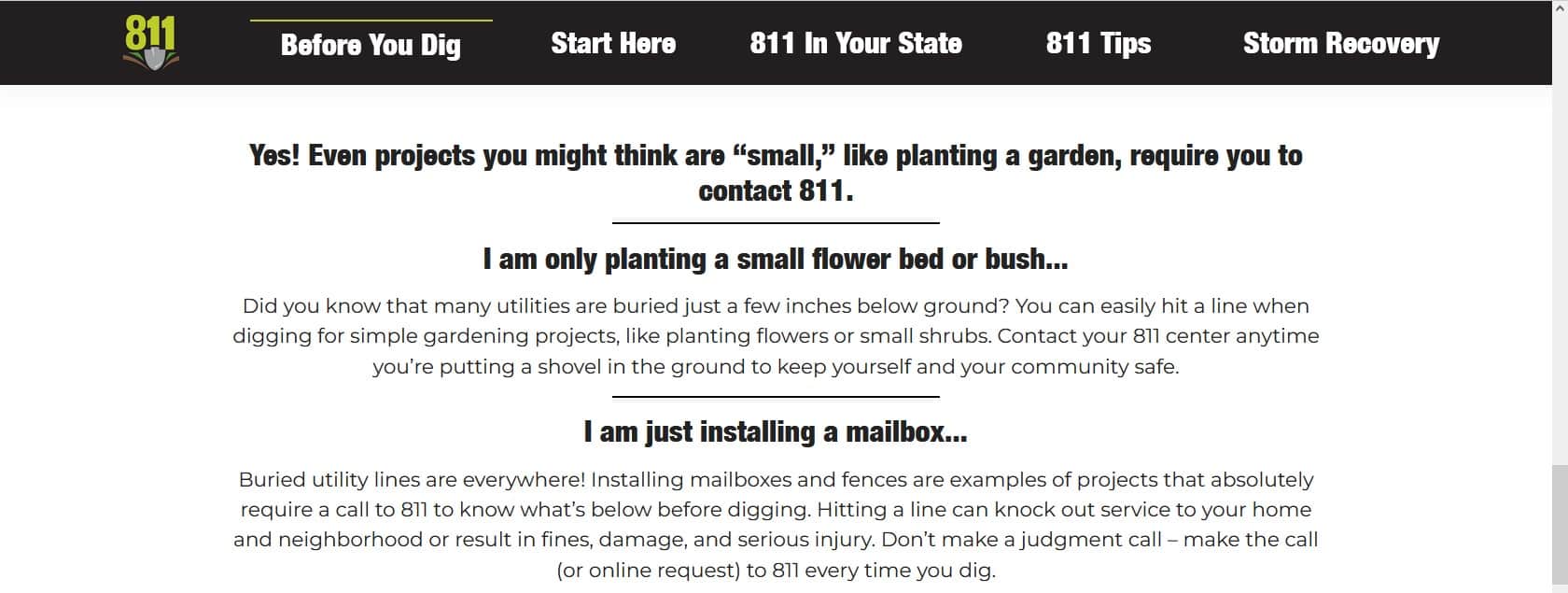
Failing to call 811 could severely damage vital utility lines, including electricity, water, sewage, cable, and natural gas. Even if you dig a few inches for flower planting or some other minor landscaping task, it is always best to contact 811 immediately.
Homeowners looking to do DIY projects like installing a fence post or a flagpole need to know exactly how deep they plan on digging before dialing 811. Knowing the depth of a project can help the utility company inform the homeowner what type of utilities could be affected. It will also help them provide important safety information that must be followed.
Generally speaking, though, most states require individuals to contact 811 before digging.
Since 1985, all US states have adopted Call Before You Dig laws. These laws vary from state to state but generally follow these guidelines by requiring individuals to contact their local One-Call center before excavation work (even small ones) is done in their yard or garden space. After placing this call, homeowners may be required to wait anywhere from 48 to 72 hours for an inspector from their local utility company to come out and mark the location of any potential underground cables before work can begin on site.
How Deep Are Most Utilities Buried?
Proper knowledge about how deep utilities should be buried is essential for any construction project. Knowing the appropriate depth for burying utility lines will help ensure that installations are completed correctly and safely. Most utilities are generally buried anywhere from two to three feet underground, depending on the size and type of utility line.
When determining the correct depth for burying a utility line, there are a few essential considerations to keep in mind: the type of pipe or wire being used, soil conditions, and environmental factors. For example, sewage lines often need to be buried deeper than other pipelines because they must be kept away from surface water sources or potable water supplies. Electrical lines should always be buried more profoundly than any other pipeline since high-voltage cables create an electrical hazard at shallow depths.
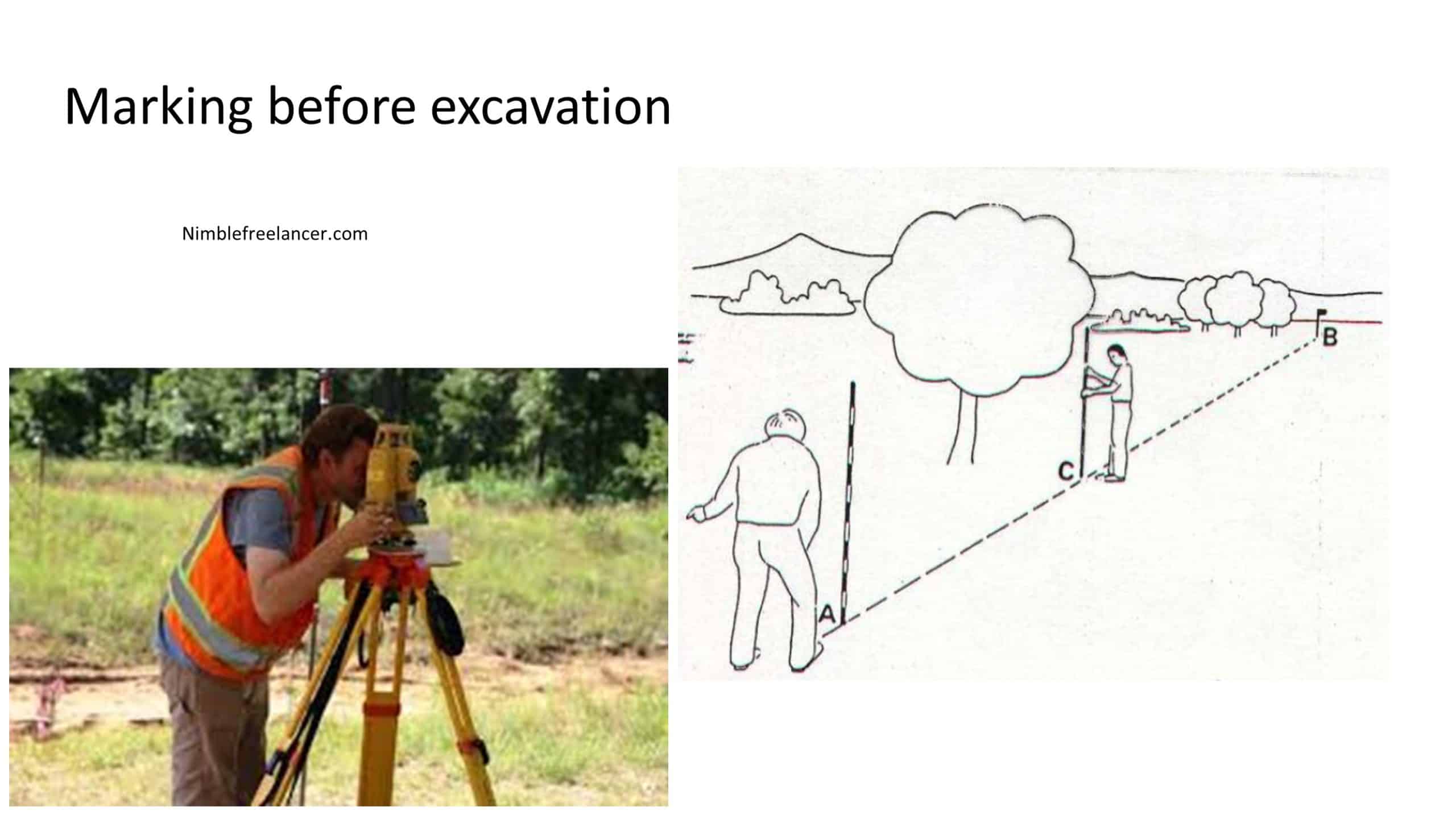
It would be best if you prepared the following tools:
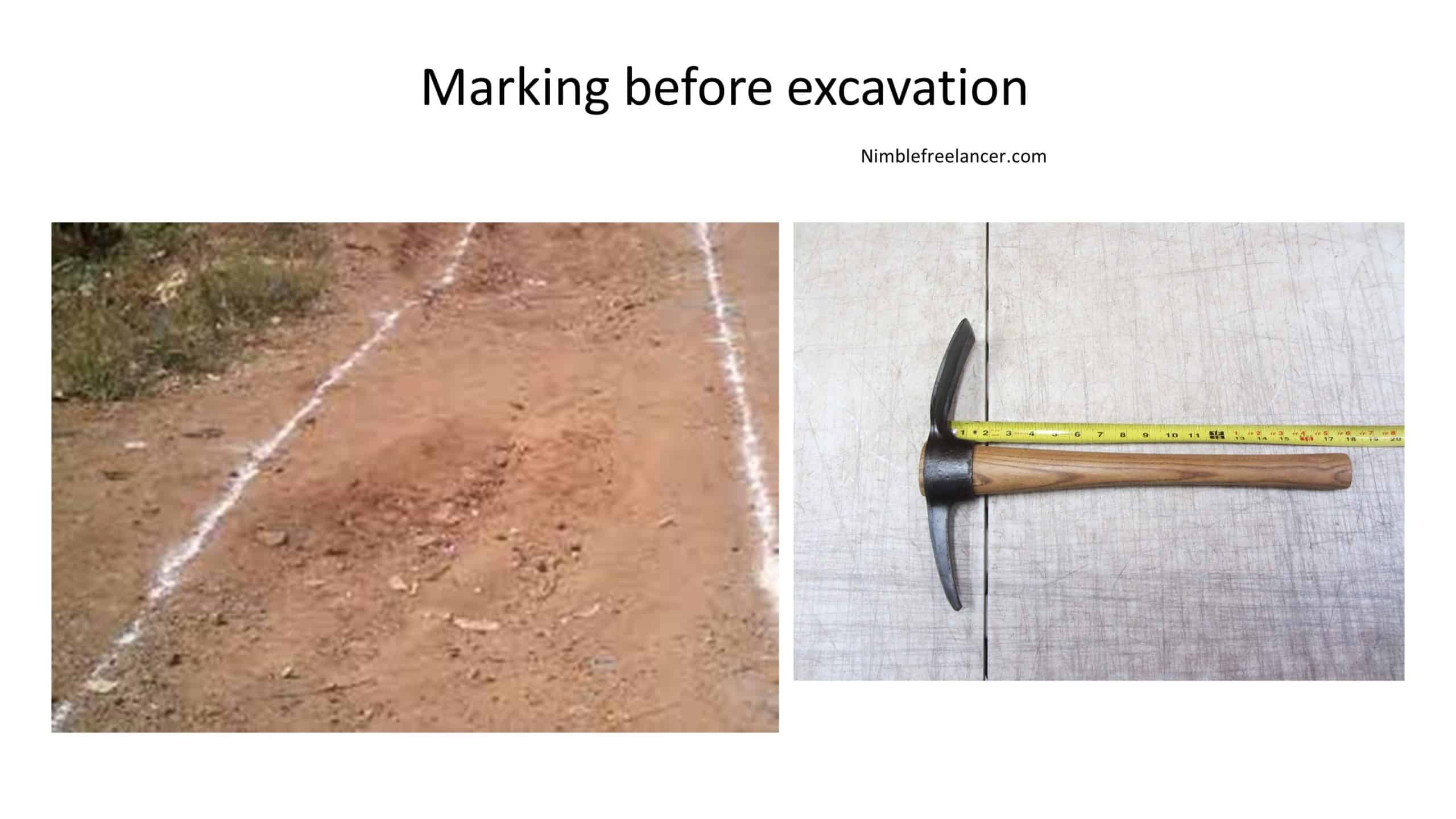
Colors for marking the area are:
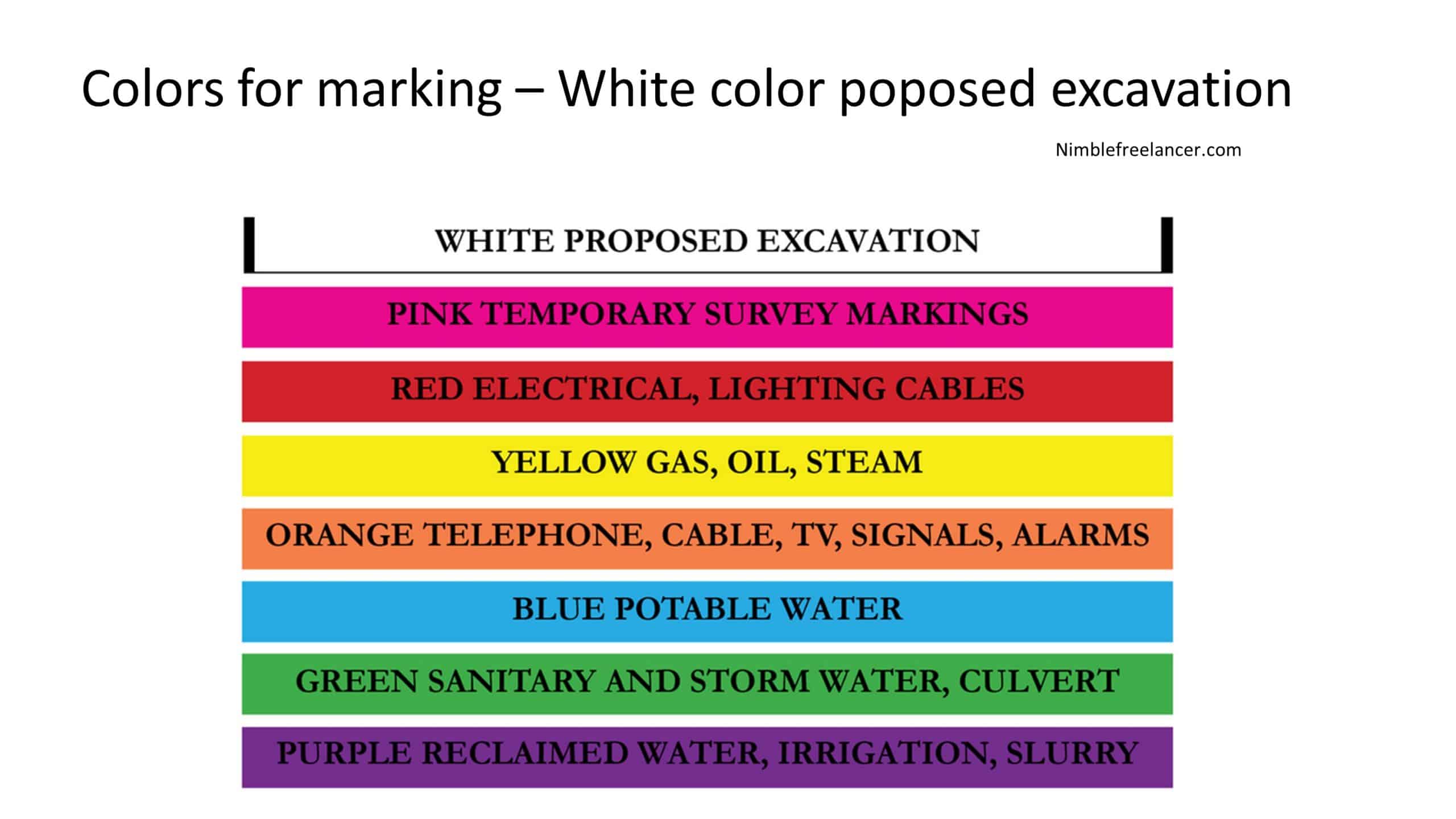
Do not make a mistake and cut the utility line :
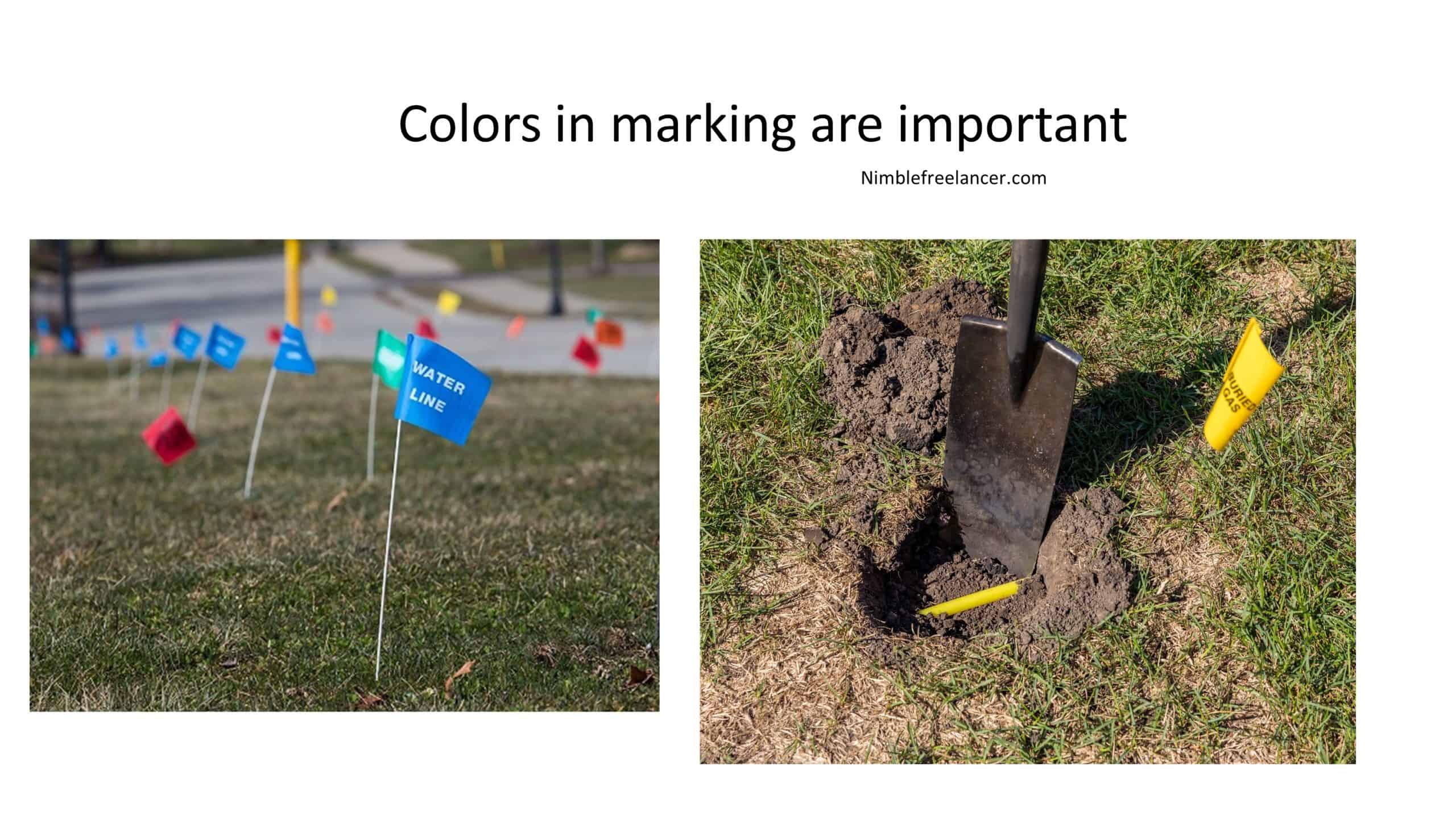
Generally, most non-conduit electricity, telephone, and sewage lines are installed between two to three feet underground. Smaller water pipes may be buried as shallow as 2 feet, while larger sewage pipes and electrical lines must usually be installed 3 feet down or more. The exact depth requirements will depend on local regulations and soil conditions, so checking with local authorities before a construction project involving pipelines or wires is essential.
Do not forget that you must know the minimum digging depth for water pipes and some buried utilities.
If you live in the US, you must know your frost line by zip code. For construction purposes, you need to know frost line depth because, for example, water pipes need to be set below a frost line to prevent them from freezing in the winter. If you plan to dig the well, read our article.
All utilities must be installed at the correct depth to avoid damage or malfunctions due to environmental conditions such as flooding or freezing temperatures. While two or three feet may seem like a considerable distance when digging trenches by hand, it is essential to remember that this depth ensures that all utility lines remain safe no matter what the weather brings. With this knowledge in mind, planning a successful construction project involving utility installation becomes much more straightforward!
Why do you need to call 811 when you plant a garden?
Several real-life experiences show that erosion and root system growth can alter buried lines’ standard depth or location. People make mistakes, and nature can change the location of buried lines. Because of that, you need to be cautious; the best way is to call 811.
When planting a garden, taking the proper safety precautions is crucial—calling 811 before starting is an essential step that should never be overlooked. 811 is a national call-before-you-dig program that helps keep people safe from the dangers of underground utility lines. This service can help protect you and your property from potential harm and provide peace of mind, knowing that you are taking all the necessary steps for a safe gardening experience.
First and foremost, calling 811 before digging will alert local utilities about where you plan on working so they can mark their buried lines. This will help prevent any accidental damage or injury caused by inadvertently hitting these lines with shovels or other gardening tools while working around them. It’s important to remember that underground lines are not limited to gas and electricity–municipal water, sewer, cable, and telephone lines may also be buried in the soil. All of these need to be considered when planting a garden, as even minor contact with one of them can result in costly repairs, severe injury, or even death if proper safety measures are not taken beforehand.
In addition to identifying any potential hazards associated with digging in the area, calling 811 will ensure that utilities have enough time to come out and mark their lines before the start of your project. Depending on where you live, it could take several days for them to show up, so it’s best to give them as much warning as possible if planning on starting work soon after making the call. This can also be beneficial if you need additional information regarding available plans or services and any restrictions that may apply regarding specific construction projects like building an outdoor kitchen or swimming pool near buried utility lines.
Erosion and root system growth can also alter the average depth and location of buried lines, so calling 811 when planning a garden—or any other type of dig—is even more critical than ever. People make mistakes due to inexperience or lack of knowledge about how nature affects buried lines over time; this comes with added risk for those who choose not to contact utility providers before beginning their project on land where such networks exist beneath the surface.
But let us look at the law:
Is it against the law to dig without calling 811?
Yes, it is against the law, The Underground Facility Protection Act, to dig without calling 811. You need to call 811 when you want to dig your backyard to plant the flower or put the mailbox.
In addition, failing to call 811 when you plan on digging carries stiff penalties. Depending on state laws, those who violate this act could face fines ranging from $50 to $5,000 or more and even criminal charges if their ignorance results in harm to people or property.
The Underground Facility Protection Act, better known as the “One Call Law,” is a law that was enacted to ensure the safety of underground facilities when digging is performed. This act requires anyone who wishes to perform any excavation activity first to contact their local One Call center before beginning. By doing this, they can be notified of the exact locations of all underground utility lines and other infrastructure before they start any digging activities. This helps to avoid potential damages and serious injuries caused by accidentally hitting a buried utility line or cable.
Congress established the One Call Law in 1975 to help reduce incidents involving damaged underground utilities during excavations and other construction projects. Since then, many states have adopted the law and implemented it into their regulations. The law applies to licensed contractors and individuals doing smaller home improvement projects such as gardening or fence installation. Most notably, this act has been adopted by nearly every state in the United States, Canada, Mexico, and several current European Union members.
The intent behind this law is simple: To prevent accidental damage caused by excavation activities without proper notification of any existing underground facilities beforehand. This includes telecommunication lines and pipes carrying natural gas or hazardous materials such as petroleum products, which, if disturbed, can cause severe injury or death due to fires, explosions, toxic fumes, or other dangers associated with these materials. Additionally, The One Call Law helps protect existing roads or highways nearby from being damaged due to heavy equipment used during excavations, making roads impassable for both vehicular and pedestrian traffic for extended periods.
To abide by The One Call Law requirements, professional engineers must create detailed maps showing where all utilities are located so that individuals who plan on performing digging activities can be aware beforehand if there are any nearby underground facilities, which must be avoided at all costs. Suppose a person decides not to follow this law and goes ahead with their project regardless. In that case, they may receive heavy fines and criminal charges depending on the severity of the incident due to a lack of proper notification beforehand.




